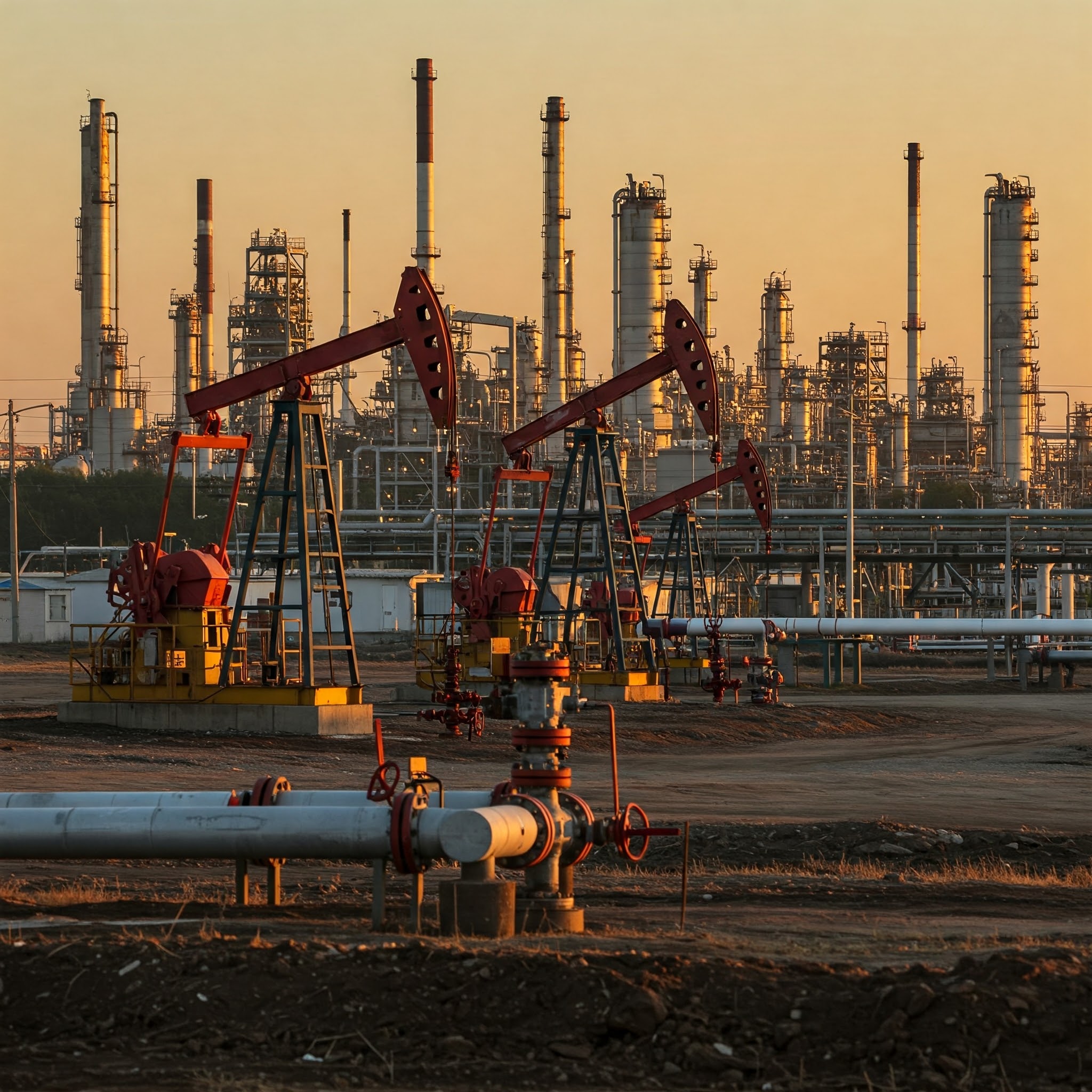Petroleum Energy Advantages and Disadvantages
|
|---|
| Advantages | Disadvantages |
|---|
- Petroleum has a high energy content per unit volume, meaning a small amount can produce a large amount of energy. This makes it particularly effective for transportation and industrial uses.
- Petroleum can be refined into various products, including gasoline, diesel, jet fuel, heating oil, and petrochemicals used in plastics, fertilizers, and other industries.
- The global infrastructure for extracting, refining, and distributing petroleum is well-established, with pipelines, refineries, and transportation systems in place.
- Petroleum energy is available 24/7, regardless of weather conditions, making it a reliable source of energy for consistent power generation and transportation.
- The petroleum industry is a major economic driver, providing jobs, revenue, and fueling industries worldwide. It is also a significant source of tax revenue for many governments.
- Petroleum can be easily stored and transported in liquid form, making it convenient for use in various locations and applications.
|
- Burning petroleum products releases significant amounts of carbon dioxide (CO2), a greenhouse gas that contributes to climate change. It also emits other pollutants like sulfur dioxide (SO2) and nitrogen oxides (NOx), which can cause air pollution and health problems.
- Petroleum is a non-renewable resource. As reserves are depleted, it becomes more challenging and expensive to extract, leading to concerns about long-term availability and energy security.
- The extraction, transportation, and storage of petroleum carry the risk of spills and accidents, which can have environmental and economic consequences.
- The global distribution of petroleum reserves is uneven, leading to geopolitical tensions and conflicts over access to resources. This reliance on petroleum can make countries vulnerable to supply disruptions and price volatility.
- As a source of greenhouse gas emissions, petroleum energy contributes to global warming and climate change.
- The extraction, refining, and combustion of petroleum can lead to the release of toxic substances, posing health risks to workers and communities near oil production and refining facilities.
- Petroleum prices are subject to fluctuations due to geopolitical events, supply and demand dynamics, and market speculation. This volatility can impact economies and lead to energy price instability.
|
 Energy deriisved from petroleum, a fossil fuel that is formed from the remains of ancient marine organisms buried under layers of sediment and subjected to heat and pressure over millions of years. Petroleum, also known as crude oil, is a complex mixture of hydrocarbons that can be refined into various products such as gasoline, diesel, jet fuel, heating oil, and other petrochemicals. Petroleum energy has been a cornerstone of modern industry and transportation, but its environmental impact has led to increasing interest in renewable energy sources.
Energy deriisved from petroleum, a fossil fuel that is formed from the remains of ancient marine organisms buried under layers of sediment and subjected to heat and pressure over millions of years. Petroleum, also known as crude oil, is a complex mixture of hydrocarbons that can be refined into various products such as gasoline, diesel, jet fuel, heating oil, and other petrochemicals. Petroleum energy has been a cornerstone of modern industry and transportation, but its environmental impact has led to increasing interest in renewable energy sources.
Petroleum energy has played a crucial role in the development of modern society, offering significant advantages in terms of energy density, versatility, and infrastructure. However, its environmental impact, finite nature, and associated risks have led to increasing calls for a transition to cleaner, more sustainable energy sources.
How Petroleum Energy is Utilized
Extraction - Petroleum is extracted from the earth through drilling. Once accessed, crude oil is brought to the surface.
Refining - The crude oil is transported to refineries, where it undergoes various processes like distillation, cracking, and reforming to separate it into different components. These components are further processed into usable products like gasoline, diesel, kerosene, and lubricants.
Combustion - The refined products are used as fuel in internal combustion engines (in vehicles, ships, airplanes) or in power plants to generate electricity. When these fuels are burned, they release energy in the form of heat, which can be converted into mechanical or electrical energy.
Applications of Petroleum Energy
Transportation - The majority of petroleum is used to produce fuels like gasoline and diesel that power cars, trucks, airplanes, and ships.
Electricity Generation - Some power plants burn petroleum products to generate electricity.
Industrial Use - Petroleum is a key raw material in the chemical industry, used to produce plastics, fertilizers, and other chemicals.
Heating - Heating oil derived from petroleum is used in some regions to heat homes and buildings.

 Energy deriisved from petroleum, a fossil fuel that is formed from the remains of ancient marine organisms buried under layers of sediment and subjected to heat and pressure over millions of years. Petroleum, also known as crude oil, is a complex mixture of hydrocarbons that can be refined into various products such as gasoline, diesel, jet fuel, heating oil, and other petrochemicals. Petroleum energy has been a cornerstone of modern industry and transportation, but its environmental impact has led to increasing interest in renewable energy sources.
Energy deriisved from petroleum, a fossil fuel that is formed from the remains of ancient marine organisms buried under layers of sediment and subjected to heat and pressure over millions of years. Petroleum, also known as crude oil, is a complex mixture of hydrocarbons that can be refined into various products such as gasoline, diesel, jet fuel, heating oil, and other petrochemicals. Petroleum energy has been a cornerstone of modern industry and transportation, but its environmental impact has led to increasing interest in renewable energy sources.
